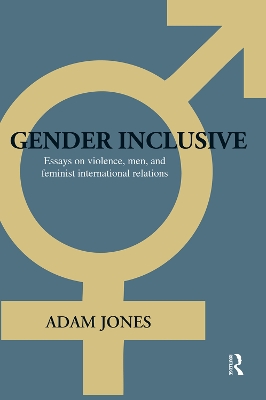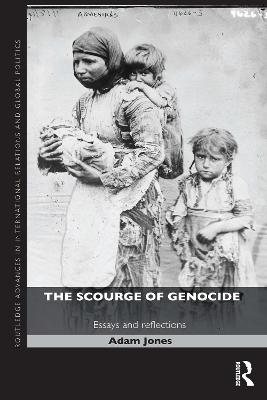Routledge Advances in International Relations and Global Politics
2 total works
Gender Inclusive offers a challenging and unconventional reinterpretation of gender and mass violence.
Compiling essays and excerpts drawn from nearly two decades of Adam Jones’s writing on gender and politics, this stimulating and diverse collection of essays explores vital issues surrounding ‘gendercide’ (gender-selective mass killing) including:
- How gender shapes men and women as victims and perpetrators of mass violence, including genocide.
- The range of gender-selective atrocities inflicted upon males, especially the gendercidal killing of civilian men of "battle age."
- The victimization of women and girls worldwide, including the structural forms of violence ("gendercidal institutions") directed against them.
- Genocidal violence throughout modern history, with a particular focus on the Balkans and Rwanda.
- In-depth critiques of prevailing gender framings in academic scholarship, mass media, and the policy sphere.
Adam Jones – recently selected as "one of fifty key thinkers in Holocaust and genocide studies" – contests prevailing interpretations of gender and violence, arguing that they fail to capture the broad range of gendered experience. His global-historical treatment is essential reading for anyone with an interest in genocide, human rights and gender studies.
- Genocide, pedagogy, and visual representation.
- Gender and "gendercide."
- The role of media and communications in genocide.
- The historiography of genocide studies.
- "Subaltern genocide," or genocides by the oppressed.
- Strategies of genocide prevention and intervention.
Covering a broad spectrum of theoretical perspectives, as well as case studies from the former Yugoslavia, Rwanda, Guatemala, Afghanistan, Iraq, and Israel/Palestine, this book is essential reading for all scholars and students of genocide studies, political violence, and international relations.

